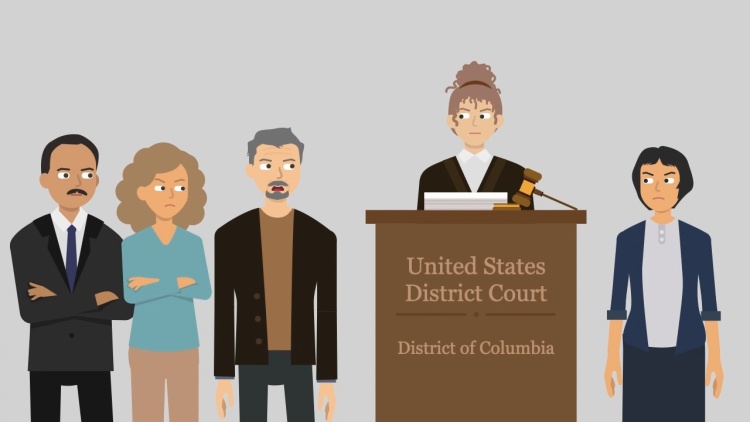Shaffer v. George Washington University
United States Court of Appeals for the District of Columbia Circuit
27 F.4th 754 (2022)
- Written by Liz Nakamura, JD
Facts
Mark Shaffer (plaintiff), the parent of a student at George Washington University (GWU) (defendant), paid full tuition for GWU’s on-campus spring 2020 undergraduate program. The catalog for the on-campus program touted GWU’s in-person instruction and hands-on educational opportunities. However, because of the COVID-19 pandemic, GWU shut down its campus in March 2020 and transitioned all students to online learning. GWU did not refund any of Shaffer’s tuition payment even though GWU charged substantially less for its existing online-only programs. Shaffer, along with other similarly situated parents and students, filed a class action against GWU, arguing that GWU had breached express and implied-in-fact contracts to provide in-person instruction. Alternatively, even if no such contract existed, Shaffer argued that it would be unjust enrichment for the universities to retain the tuition he paid for on-campus instruction while providing only lower-value, online-only instruction. GWU countered, arguing that (1) GWU was not contractually obligated to provide in-person instruction, (2) GWU retained the right to change the on-campus programming at any time, and (3) GWU was justified in retaining Shaffer’s tuition payment because GWU provided Shaffer with an education. The district court agreed and dismissed Shaffer’s action. Shaffer appealed.
Rule of Law
Issue
Holding and Reasoning (Edwards, J.)
What to do next…
Here's why 911,000 law students have relied on our case briefs:
- Written by law professors and practitioners, not other law students. 47,100 briefs, keyed to 997 casebooks. Top-notch customer support.
- The right amount of information, includes the facts, issues, rule of law, holding and reasoning, and any concurrences and dissents.
- Access in your classes, works on your mobile and tablet. Massive library of related video lessons and high quality multiple-choice questions.
- Easy to use, uniform format for every case brief. Written in plain English, not in legalese. Our briefs summarize and simplify; they don’t just repeat the court’s language.





